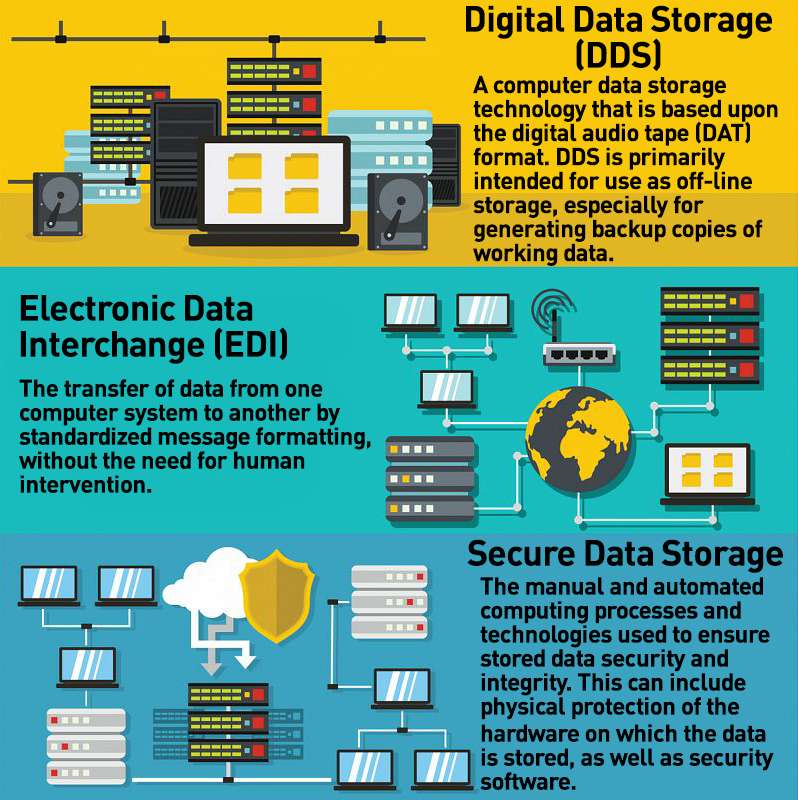The Effect of Effective Data Destruction on Cyber Security Threat Administration
The Effect of Effective Data Destruction on Cyber Security Threat Administration
Blog Article
The Essential Nature of Data Destruction in Upholding Computer System Safety Solutions and Protecting Versus Unauthorized Accessibility
In an era where data violations and identification burglary are significantly common, the value of efficient information damage can not be overstated. Organizations must acknowledge that the failing to properly throw away sensitive info postures not only legal and financial threats yet also a potential erosion of customer trust. Numerous techniques, from data wiping to physical destruction, function as critical safeguards versus unauthorized accessibility. However, understanding the effects of information destruction practices and compliance with guidelines raises vital concerns about the competence of current approaches and their lasting practicality when faced with evolving risks.
Importance of Data Destruction
In a significantly electronic world, the relevance of information devastation can not be overstated. As organizations collect vast amounts of delicate info, the prospective repercussions of falling short to effectively take care of and dispose of that information become significantly extreme. Data breaches, identity burglary, and corporate reconnaissance present considerable threats, underscoring the necessity of efficient data devastation techniques.

Moreover, as modern technology develops, so as well do the approaches through which malicious stars seek to manipulate delicate information. Organizations needs to continue to be vigilant and aggressive in their data devastation techniques to guard versus these advancing hazards. By focusing on data devastation, business not just shield their possessions however likewise foster count on among stakeholders and clients, showing a dedication to responsible data monitoring and protection methods.
Approaches of Effective Data Destruction
To guarantee the complete and irreparable destruction of sensitive information, companies can utilize a range of efficient approaches customized to their details requirements. One of one of the most common methods is information wiping, which includes utilizing specialized software application to overwrite existing data several times, making recovery essentially impossible. This is particularly beneficial for hard drives and solid-state drives, where conventional removal methods are poor.
One more reliable technique is degaussing, which makes use of strong magnetic areas to interrupt the magnetic domain names on storage media, providing the data irretrievable. This technique is especially suited for magnetic storage tools, such as disk drive and hard drives.
Physical damage is likewise a viable option, entailing the shredding, crushing, or incineration of storage devices. This technique warranties that data can not be recovered, making it ideal for companies dealing with extremely sensitive details.

Conformity With Information Defense Regulations
Organizations should not just concentrate on effective data devastation methods however likewise guarantee conformity with data security guidelines that regulate exactly how sensitive details is handled and dealt with. Sticking to these guidelines is vital for preserving and guarding individual data client trust fund. websites Regulations such as the General Data Security Guideline (GDPR) in the European Union and the Health And Wellness Insurance Policy Mobility and Liability Act (HIPAA) in the USA enforce strict standards on data management, which include demands for the safe disposal of sensitive info.
To achieve compliance, companies should carry out detailed data damage plans that align with these legal structures. This includes recognizing data that calls for destruction, developing procedures for safe methodsâEUR" such as shredding physical media or utilizing software that satisfies sector requirements for information wipingâEUR" and maintaining detailed documents of devastation activities. Normal audits ought to be conducted to guarantee adherence to these plans and to recognize any potential areas for renovation.
Failure to comply with information defense laws can lead to significant lawful implications, including hefty penalties and damages to a company's credibility. Consequently, incorporating conformity right into information devastation practices is not just a legal obligation but also an essential element of a durable details security approach.
Effects of Poor Information Handling
Poor information handling can cause serious repercussions that prolong past prompt functional troubles. Organizations might deal with significant financial losses as a result of information violations, which often cause expensive remediation efforts, legal fees, and regulative penalties. These monetary ramifications can hinder and strain resources growth, inevitably impacting an organization's profits.
Furthermore, poor data handling can drastically damage an organization's reputation. Stakeholders, consumers, and partners may lose count on an entity that falls short to secure sensitive details, leading to decreased client commitment and prospective loss of company chances. This erosion of count on can take years to restore, if it can be restored at all.
Additionally, organizations might deal with legal implications developing from non-compliance with information security regulations. Such infractions may cause examinations and fines, compounding the financial burden and additional tainting the organization's image.
In the world of cybersecurity, insufficient information administration practices can develop vulnerabilities that make systems much more vulnerable to unauthorized access and cyberattacks. Inevitably, these repercussions underscore the crucial importance of executing durable data taking care of procedures to protect delicate information and keep business integrity.
Finest Practices for Secure Information Disposal


Firstly, data must be classified according to its sensitivity. Delicate details needs much more strenuous disposal techniques, such as shredding physical documents and utilizing innovative software program for electronic information wiping. Employing certified information devastation solutions ensures conformity with industry guidelines and criteria.
Secondly, companies must apply an information disposal policy that mandates normal audits. This policy Discover More Here must lay out the procedures for information retention and devastation, ensuring that out-of-date data is taken care of promptly and securely. Training employees on these protocols is necessary to fostering a culture of safety and security awareness.
Last but not least, preserving thorough records of disposed data boosts liability and gives a clear audit trail. This documents ought to include the sort of data ruined, the technique made use of, and the date of disposal.
Verdict
Finally, the critical of efficient information devastation is obvious in its role in enhancing computer system security services and reducing unapproved access dangers. Adopting durable methods such as information wiping, degaussing, and physical destruction, alongside compliance with laws like GDPR and HIPAA, is crucial for safeguarding sensitive details. Neglecting correct data disposal techniques can result in severe effects, including data breaches and legal repercussions. Implementing best practices in safe data disposal inevitably strengthens organizational integrity and client trust fund.
In an age where information breaches and identity burglary are progressively common, the importance of reliable data devastation can not be overemphasized. data destruction. Data breaches, identification theft, and company reconnaissance present substantial risks, highlighting the need of efficient data damage practices
Compliance with regulations such as GDPR and HIPAA mandates that organizations carry out strict information security actions, including the secure damage of data at the end of its lifecycle.
By prioritizing information devastation, firms not only shield their properties yet likewise foster trust among stakeholders and clients, showing a commitment to responsible information administration and protection techniques.
Organizations have to not just focus on reliable information destruction techniques yet additionally make sure compliance with data security guidelines that govern exactly how delicate information is dealt with and disposed of.
Report this page